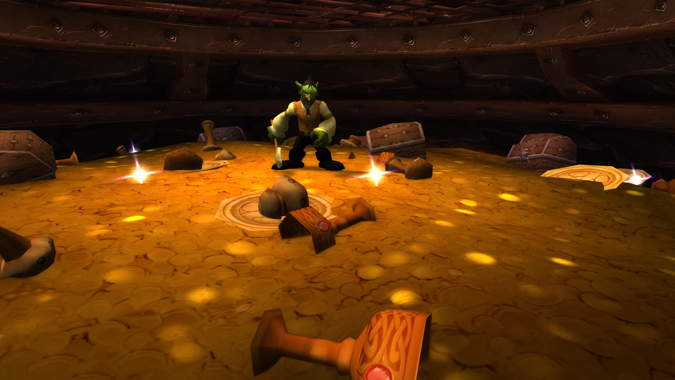Content Table:
Blizzard and World of Warcraft Gold Sellers
Introduction
In the ever-evolving landscape of online gaming, World of Warcraft (WoW) has carved out a significant niche. Many players today seek to buy WoW gold, items, accounts, and power-leveling services. However, Blizzard Entertainment, the game’s developer, along with many players, views these practices as forms of cheating. This article delves into the complexities surrounding the purchase and sale of WoW gold, exploring the implications for the gaming community and the game’s economy.
The Allure of Buying WoW Gold
The ability to enhance a character’s capabilities through real money transactions is enticing for many players. By purchasing gold, players can acquire better quality items, weapons, armor, and other equipment much faster than grinding through the game. However, this raises concerns for those who prefer the traditional method of gameplay and do not have the extra cash to spare. The contrast between paying for a competitive edge and playing the game “the old-fashioned way” often leads to friction within the community.
The Historical Context of Cheating
Cheating in video games is not a new phenomenon. For instance, when Game Shark was introduced for Nintendo systems, the company did not attempt to stop its sale. Players who chose to cheat could still play with others who preferred to do so legitimately. This historical precedent highlights a fundamental truth: not everyone wants to compete on the same terms. The same principle applies to buying gold in WoW, as those who purchase it do not need to engage with players who avoid such practices.
The Impact of Gold Farmers
Gold farmers, or individuals who specialize in acquiring in-game gold to sell for real money, have disrupted the gameplay experience for many WoW players. Their presence can lead to an imbalanced economy within the game. If buying and selling gold were prohibited, many of these farmers might cease to exist, allowing for a more enjoyable experience for regular players. Some suggest that Blizzard should implement measures to regulate farming, such as allowing players to tag mobs and prepare for battles without interference from gold farmers.
The Economic Implications
Buying and selling WoW gold can significantly disrupt the in-game economy. Excess gold leads to inflation, where the value of in-game currency drops, and the prices of items skyrocket. This means that players must spend more gold than necessary to acquire items, which can be frustrating. The game’s economy operates on principles of supply and demand, and when an influx of gold alters the balance, it can diminish the overall experience for players who engage with the game authentically.
Blizzard’s Stance on Gold Selling
Despite the challenges posed by gold selling, Blizzard has yet to implement a comprehensive solution. While the company bans accounts involved in farming and selling gold, it also recognizes that a significant portion of its player base is involved in these practices. Interestingly, farmers represent about 30% of the total player population. This presents a dilemma for Blizzard: eliminate farmers and risk losing a substantial number of subscribers, or find a balance that maintains player engagement while addressing the issue.
Comparing Approaches: Sony Online Entertainment
Another major player in the MMORPG market, Sony Online Entertainment (SOE), has taken a different approach by introducing the Sony Exchange. This platform allows players to securely auction their in-game currencies and items for real cash. In return, SOE collects a small fee, creating a profitable secondary market. As SOE embraces this trend, one must wonder whether Blizzard should consider a similar strategy to harness the potential of the growing gold-selling market.
The Future of Gold Selling in WoW
As the gaming industry continues to evolve, the dynamics of buying and selling gold in WoW will undoubtedly change. Blizzard’s substantial player base provides a unique opportunity to explore new monetization strategies, such as creating official channels for buying and selling in-game currency. While the current stance may discourage players from engaging in gold purchasing, adapting to market trends could enhance player satisfaction and generate additional revenue for Blizzard.
Conclusion
The debate over buying and selling WoW gold is multifaceted, encompassing issues of fairness, economic stability, and player engagement. While some players view the practice as a necessary evil in the competitive landscape of gaming, others see it as a detrimental force that undermines the integrity of the game. As we navigate this complex terrain, it is essential to consider the implications of our choices within the game and to seek solutions that enhance the overall gaming experience for everyone involved.
Ultimately, whether players choose to buy gold or not, the richness of the World of Warcraft community remains a testament to the enduring appeal of online gaming.



